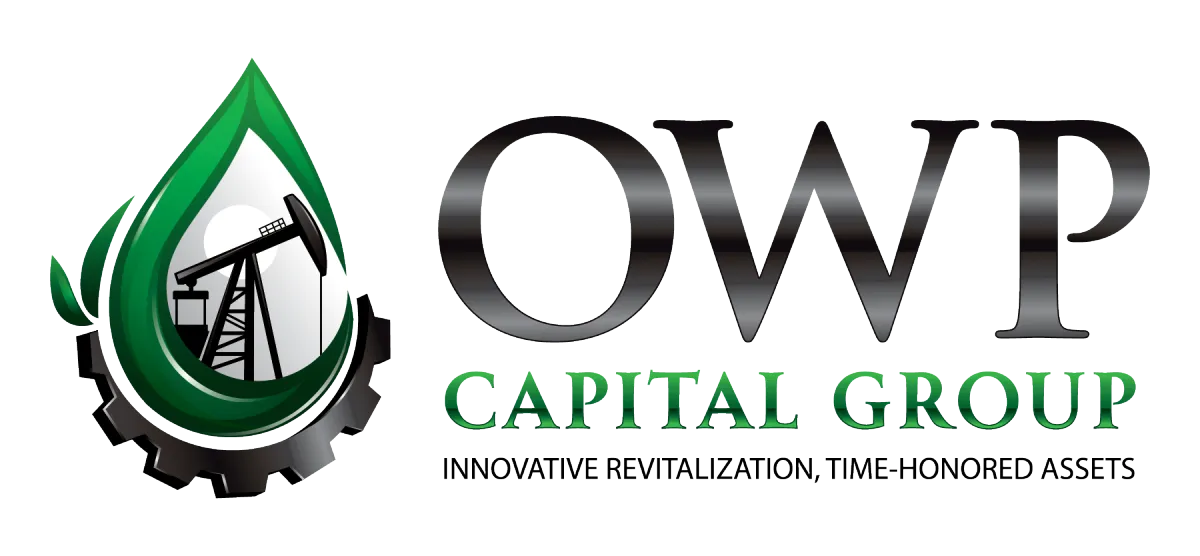
Our Risk Mitigation Formula
Our Risk Mitigation Formula

Our Risk
Mitigation Formula
PDP vs Drilling Wells
We focus on acquiring existing producing assets (PDP) because they offer a proven track record of performance, backed by publicly available production data. Unlike drilling new wells—which involves uncertainty around reservoir quality, production rates, and regulatory delays—PDP assets provide reliable, verifiable history that allows for more accurate forecasting. This transparency significantly reduces risk and supports more predictable, stable returns for investors.
Multiple Oil fields
Using leverage at approximately 70% of an acquisition allows us to reduce the amount of investor capital needed for each deal, limiting exposure while maintaining strong returns. This means investors only fund about 30% of the asset’s value, but still benefit from 100% of the cash flow and upside. By financing a large portion of the purchase through fixed-rate debt, we can preserve investor capital. This allows us to purchase multiple Oil fields in each fund to further diversify the investment.
PDP vs Drilling Wells
We focus on acquiring existing producing assets (PDP) because they offer a proven track record of performance, backed by publicly available production data. Unlike drilling new wells—which involves uncertainty around reservoir quality, production rates, and regulatory delays—PDP assets provide reliable, verifiable history that allows for more accurate forecasting. This transparency significantly reduces risk and supports more predictable,
stable returns for investors.
Multiple Oil fields
Using leverage at approximately 70% of an acquisition allows us to reduce the amount of investor capital needed for each deal, limiting exposure while maintaining strong returns. This means investors only fund about 30% of the asset’s value, but still benefit from 100% of the cash flow and upside. By financing a large portion of the purchase through fixed-rate debt, we can preserve investor capital. This allows us to purchase multiple Oil fields in each fund to further
diversify the investment.
Stress Test Commodity Pricing Scenarios
We stress-test every investment using different pricing scenarios to make sure it performs even during downturns. One key method is strip pricing, which uses the market’s future oil and gas prices to build realistic forecasts. This helps us avoid overpaying, plan for worst-case scenarios, and ensure stable returns—even when the market is unpredictable.
Conventional vs Non-Conventional
Conventional wells decline more slowly over time because they produce oil from natural pressure in the rock. This means the drop in production is gradual and easier to predict. In contrast, non-conventional wells, like those using fracking, often start with high production but decline very quickly—sometimes by more than half in the first year. This makes them less reliable for long-term, steady cash flow.
Conventional vs Non-Conventional
Conventional wells decline more slowly over time because they produce oil from natural pressure in the rock. This means the drop in production is gradual and easier to predict. In contrast, non-conventional wells, like those using fracking, often start with high production but decline very quickly—sometimes by more than half in the first year.
This makes them less reliable for
long-term, steady cash flow.
Stress Test Commodity
Pricing Scenarios
We stress-test every investment using different pricing scenarios to make sure it performs even during downturns. One key method is strip pricing, which uses the market’s future oil and gas prices to build realistic forecasts. This helps us avoid overpaying, plan for worst-case scenarios, and ensure stable returns—even when the market is unpredictable.
Title Opinion
This document verifies legal ownership of the mineral rights and confirms that the seller has the authority to transfer those rights. By identifying any liens, title defects, or competing claims, a title opinion helps prevent future legal disputes that could delay production or impact revenue. This legal review ensures the asset has clear, marketable title before acquisition, protecting investor capital and securing uninterrupted cash flow from asset.
Third Party Environmental Review
We mitigate risk by conducting third-party environmental reviews before each acquisition. These independent assessments identify potential liabilities, ensure regulatory compliance, and provide objective validation of the asset’s condition. This process helps prevent costly surprises and protects investor capital from unforeseen environmental risks.
Title Opinion
This document verifies legal ownership of the mineral rights and confirms that the seller has the authority to transfer those rights. By identifying any liens, title defects, or competing claims, a title opinion helps prevent future legal disputes that could delay production or impact revenue. This legal review ensures the asset has clear, marketable title before acquisition, protecting investor capital and securing uninterrupted cash flow from asset.
Third Party Environmental Review
We mitigate risk by conducting third-party environmental reviews before each acquisition. These independent assessments identify potential liabilities, ensure regulatory compliance, and provide objective validation of the asset’s condition. This process helps prevent costly surprises and protects investor capital from unforeseen environmental risks.
Shallow Depth
We stress-test every investment using different pricing scenarios to make sure it performs even during downturns. One key method is strip pricing, which uses the market’s future oil and gas prices to build realistic forecasts. This helps us avoid overpaying, plan for worst-case scenarios, and ensure stable returns—even when the market is unpredictable.
Production Uniformity
Fields with uniform production across multiple wells offer more stable and predictable cash flow. When each well contributes evenly, the impact of any single well going offline is minimal, reducing operational and financial risk. This balanced output also simplifies maintenance planning and helps avoid reliance on a few high-producing wells, which can create volatility if performance drops.
Production Uniformity
Fields with uniform production across multiple wells offer more stable and predictable cash flow. When each well contributes evenly, the impact of any single well going offline is minimal, reducing operational and financial risk. This balanced output also simplifies maintenance planning and helps avoid reliance on a few high-producing wells, which can create volatility if performance drops.
Shallow Depth
We stress-test every investment using different pricing scenarios to make sure it performs even during downturns. One key method is strip pricing, which uses the market’s future oil and gas prices to build realistic forecasts. This helps us avoid overpaying, plan for worst-case scenarios, and ensure stable returns—even when the market is unpredictable.
Click for a 6 minute video explaining our fund
Click for a 6 minute video explaining our fund

Disclosures : OWP Capital Group conducts offerings pursuant to Rule 506(c) of Regulation D under the Securities Act of 1933, as amended. These offerings are exempt from SEC registration, but are available only to accredited investors as defined in Rule 501 of Regulation D. Accredited investors may include Individuals with net worth exceeding $1 million (excluding primary residence), or Individuals with annual income over $200,000 ($300,000 jointly with a spouse or partner) in each of the past two years, with a reasonable expectation of the same for the current year. Certain legal entities with sufficient assets or institutional qualifications also qualify. As a 506(c) offering, OWP Capital Group is permitted to market publicly (including through digital channels, webinars, or events), but is required to take reasonable steps to verify the accredited investor status of all participants. This verification must occur prior to accepting investment capital and involves collecting supporting documentation such as financial statements, W-2s, tax returns, or verification letters from licensed professionals.
Investors will receive access to a Private Placement Memorandum (PPM), subscription documents, and other fund disclosures through a secure investor portal. All investment decisions should be made based solely on a thorough review of these materials. Participation in the fund does not establish an advisory or client relationship between investors and OWP Capital Group or any affiliated third parties. OWP Capital Group does not provide investment advice, tax planning, or legal counsel. Investors are encouraged to consult their own advisors before making an investment. Investments in private placements involve significant risk, including the potential loss of principal, illiquidity, and long holding periods. These offerings are intended for investors who can withstand a total loss of their investment and who do not require immediate liquidity.
No representation is made regarding the accuracy or completeness of information, and all materials are subject to change without notice. Prospective investors are strongly encouraged to review
all offering materials in full and to consider the risk disclosures provided in the PPM before investing.
Past performance is not indicative of future results. Certain statements made by OWP Capital Group may be forward-looking in nature, reflecting current expectations and projections related to operations, returns, or fund performance. These statements are subject to a variety of risks and uncertainties that may cause actual outcomes to differ materially. No assurance can be given that targeted results, including projected IRRs, cash flow, or return of capital timelines, will be achieved. All data presented by OWP Capital Group is based on internal analysis and assumptions and has not been independently verified unless otherwise noted.

Facebook
Instagram
LinkedIn
Youtube